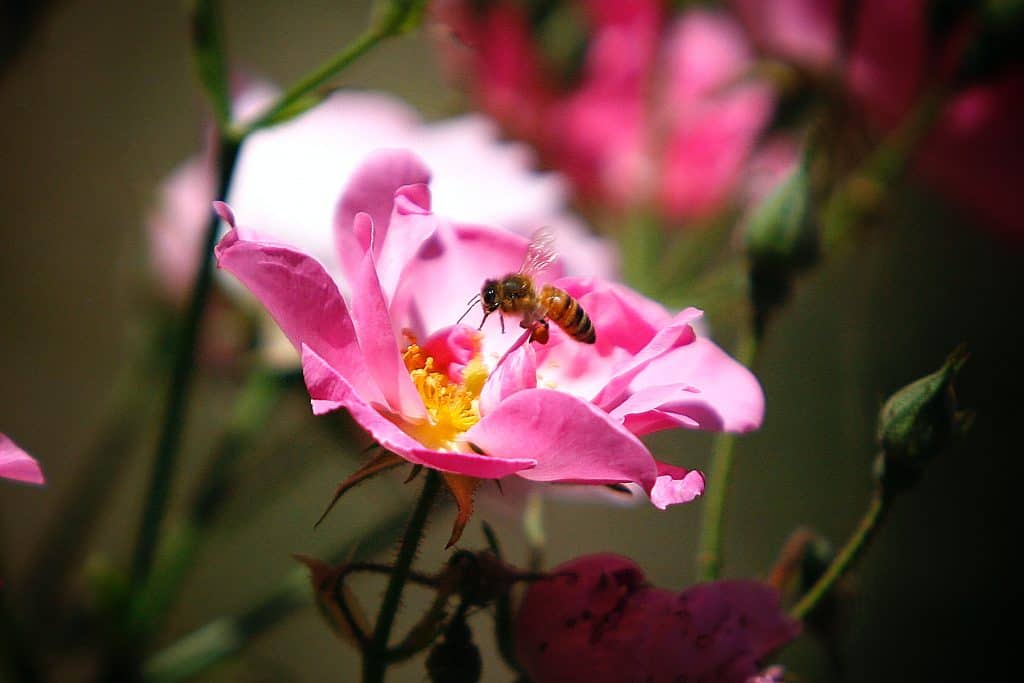Over 50 million Americans suffer from seasonal allergies every year. If you’re one of them, you know that symptoms like sneezing, a runny nose, and red, itchy eyes can be downright debilitating. But have you noticed your allergies getting worse over the years?
If so, you’re not imagining things. Your stronger symptoms could be linked to climate change.
Yes, as if we needed another reason to be worried over the health of the planet, something as small as seasonal allergies are being impacted too! So what does climate change have to do with seasonal allergies?
According to the Asthma and Allergy Foundation of America, warmer temperatures across the globe are causing pollen season to last longer. Between 1995-2011, the season extended from 11-27 days longer in the U.S. thanks to warmer temperatures.
Climate change can still be slowed, if the right steps are taken. In the meantime, what can you do to find relief from your seasonal allergies despite a longer pollen season?
Reducing Your Risk of Allergy Symptoms Inside
As an allergy sufferer, you already know that being indoors doesn’t always give you relief from your symptoms. That’s because pollen and other allergens can stay on your clothes, furniture, carpets, and even on your skin and hair.
Even though climate change is continuing to worsen, there are things you can do to keep your symptoms at bay, even when you’re inside. Try some of these preventive measures to stop the irritation of sneezing, itching, and redness:
- Wash your hands frequently
- Avoid touching/rubbing your eyes, especially if you wear contact lenses
- Wash clothing items regularly, especially sheets, pillowcases, and towels
- Keep windows and doors shut during pollen season
- Vacuum regularly
- Install HEPA filters in air conditioning/heating units
While these preventative solutions may not completely eliminate your symptoms, they can greatly improve them and provide some relief.
Playing it Safe Outdoors
Allergies can wreak havoc on your body when you’re outside. But you can still enjoy the outdoors safely if you’re a seasonal allergy sufferer. In fact, spending time outside can give you plenty of opportunities to do something good for the planet, like planting a garden or cleaning up trash around your neighborhood. So don’t let your allergies keep you from enjoying the great outdoors.
There are better times to go outside than others. Seasonal allergies aren’t usually as bad on cool, cloudy, rainy days. When it’s hot, sunny, and humid, you’ll find yourself sneezing and itching a lot more! Going outside either early in the morning or in the evening can be easier on your symptoms, too.
You should also dress for “success” to fight against your allergy symptoms. Hats and sunglasses are a must if you want to protect your eyes and hair from pollen. If you want to do any work outside like gardening or landscaping, you might also consider investing in a pollen mask. Additionally, whenever you do go inside, make sure to change your clothes immediately, and take a shower if you can before changing into something clean.
Caring for the Climate
Because climate change and allergies are linked, one of the best things you can do is to start paying more respect to your carbon footprint and understanding the importance of green energy. You might think that one person can’t make a difference, but if everyone had that mindset, no one would have the motivation to make changes. It starts with you. What you do now will have long-term effects on the future.
Climate change is caused by a variety of things, including toxins in the air from CO2 emissions. Some of the biggest sources of greenhouse gas emissions include:
- Transportation
- Electricity
- Industry
- Commercial/residential
- Land use
- Agriculture
Allergies will continue to get worse as climate change gets worse (and that’s the least of the problems!). Thankfully, taking small steps to take care of the planet can make a big difference. You can make daily changes in your own life by switching to renewable energy sources like solar power to light your home. Or avoid plastic as much as possible. Switch out your plastic water bottles for reusable options and take canvas reusable bags to the grocery store.
At home, you can fight climate change by conserving energy. Turn off lights when you’re not in a room, install energy-efficient appliances, and take shorter showers. Your transportation can be more climate-friendly, too. Ride your bike as much as possible instead of driving, or share rides to work. Avoid flying as much as possible, too, since 2% of the world’s CO2 emissions come from air travel.
If everyone made these easy everyday changes, we could reduce and even reverse the effects of climate change on the planet. As an allergy sufferer, doing your part to make those changes can be a small start to a big difference.
